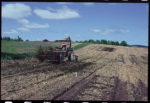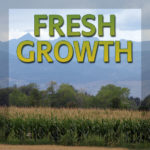The educational materials listed on this page are about Soil Microbiology.
What is Soil Microbiology?
Soil microbiology is the study of organisms in soil, their functions and how they affect properties of soil or environmental microbiology. Soil structure and interactions among microorganisms (including soil fungi, soil bacteria and species like nematodes) can impact soil biology and biochemistry and other properties of soil. The microbial structure of soil is proportional to the organic matter content, giving soil microbes, soil bacteria and soil organisms a key role in soil health. Soils that have large amounts of regularly added organic residues tend to support more soil microorganisms, which contribute to overall soil health. Soil microbiology governs nutrient processing and recycling in soil, and also affects the decomposition of organic matter in soil, soil salinity and soil acidity, thereby impacting soil fertility and crop health. Key practices include composting, earthworms, soil analysis, nutrient cycling, crop rotation, no-till systems, cover crops, agroecosystems, green manures, organic agriculture.
Common Soil Microorganisms
There are millions of microorganisms in one gram of soil, including soil fungi, soil bacteria, actinomycetes, algae, single-celled organisms like protozoa, and animalia species such as nematodes. The biomass and activity of each microbial species varies and evolves throughout the soil’s lifecycle: fungi typically dominate the biomass of a healthy sample, despite their fragility and sensitivity, while bacteria remain the most resistant to changing conditions. Soil microbial biomass can range from several hundred to thousands of pounds per acre. Variations in microbial levels and activity are directly correlated with soil management.
Impact of Soil Management on Soil Biology
Soil management practices can impact soil microbiology by either contributing to or detracting from soil’s nutrient population – the main source of food for soil microbes. For example, the use of organic fertilization methods like composting, green manures, and cover crops can optimize microbial activity by increasing the amount of microbe-feeding nutrients in the soil. A similar correlation is seen with no-till systems, which reduce the disruption of microbes and their food sources. Consequently, modern soil microbiology has been on the forefront of refining soil fertility management for sustainable agriculture and helping contaminated and/or chemically fertilized land return to healthy and productive conditions.
The Cover Crop Topic Room is a good starting point to learn more about soil microbiology and the impacts that cover crops can have on soil fertility and soil management. Building Soils for Better Crops is a key resource to understanding soil microbiology and provides a basic understanding of soil structure, fertility, microbiology and management. Crop Rotation on Organic Farms: A Planning Manual is a resource for farmers looking to integrate crop rotation into their operation to enhance organic matter and soil microbiology.
Measuring Soil Microbial Activity
A soil analysis using soil microbiology breaks down and determines all microorganisms present within soil organic matter, while also assessing microbial activity or how the microorganisms interact in the soil. Various testing methods are used, and include the measurement of soil respiration and nutrient consumption rates. Results are used to examine overall soil structure, soil quality and soil health, to ensure soil conditions are appropriate for cultivation, and to promote soil sustainability and soil conservation across various climates and land uses. Soil microbiology is most effective when combined with analysis of soil chemistry and physics.
Showing 1-2 of 2 results

Anaerobic Soil Disinfestation to Control Soil Borne Pathogens Webinar
In the webinar the presenters briefly review the development and use of anaerobic soil disinfestation (ASD) techniques for control of soil borne pathogens in various crops and regions around the world, and then focus on the current state of knowledge and use of ASD in California primarily for strawberry production. We discuss the latest research […]

Fresh Growth Podcast
Fresh Growth: Approaches to a More Sustainable Future from Western Ag Practitioners introduces you to farmers and ranchers from around the western United States who are finding innovative sustainable practices that enrich the natural resources we all care about. These successful multi-generational operations experiment with new ideas and are making it pay. Listen in as […]